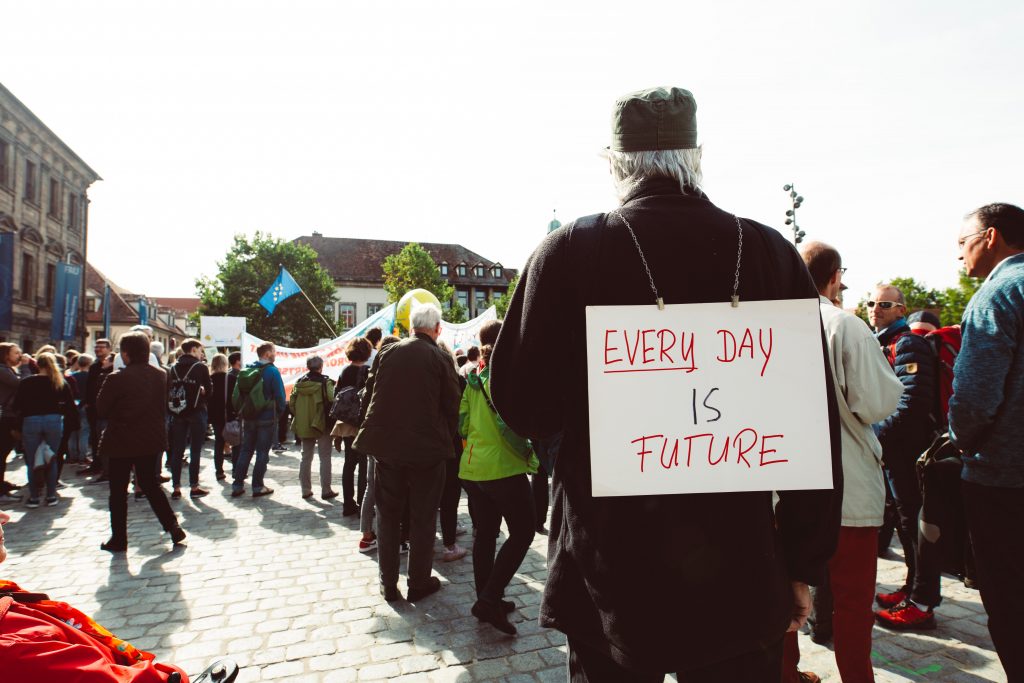The world is fast evolving and the COVID-19 pandemic has forced many to question their conventional routine including their countries’ approach to sustainability. Under Ursula Von der Leyen’s leadership, the European Commission is encouraging its Member States to shift towards a greener economy.
The bioeconomy offers a considerable amount of opportunities to do so. It enables them to transition towards sustainable production and to demand patterns that steer growth and, at the same time, respect planetary boundaries. It is therefore in line with the wider policy context both at a global and at a European level, including the following strategies:
- The European Green Deal is the new sustainable growth strategy that aims to transform every aspect of the European economy, environment and society, including energy use, food use, production and consumption of products. Bioeconomy is included to the integral part of the Commission’s strategy to implement the United Nations 2030 Agenda and the Sustainable Development Goals.
- The economic transition towards a climate-neutral economy as outlined in the 2050 Long-term Strategy, in line with the Paris Agreement objective to keep the global temperature increase to well below 2°C and pursue efforts to keep it to 1.5°C, is closely linked to the bioeconomy. On the one hand, it contributes reducing emissions and resource intensity from the food system and other biomass usages. On the other hand, it provides carbon sinks and contributes to the decarbonisation of the industry with clean (bio)technology.
- The new Circular Economy Action Plan leads the way to transform the European production and consumption system to reduce its environmental footprint and, among others, create new, circular and bio-based business opportunities.
- With a view to the importance of the agri-food sector in the bioeconomy, the new Farm to Fork Strategy and Biodiversity Strategy will be instrumental to support the food security and environmental sustainability objectives of the bioeconomy.
- For the bioeconomy as a dynamic and partly infant industry, the EC’s Action Plan on financing sustainable growth can be a central tool to re-orientate capital flows towards sustainable investments.
The BioMonitor project has produced a series of news related to these issues, and a policy brief on identifying indicators that measure the impact of the bioeconomy in society.
The updated EU Bioeconomy Strategy aims to develop a sustainable bioeconomy for Europe, strengthening the connection between economy, society and the environment. The update revalidates the five objectives of the 2012 Bioeconomy Strategy:
- Ensuring food and nutrition security;
- Managing natural resources sustainably;
- Reducing dependence on non-renewable, unsustainable resources whether sourced domestically or from abroad;
- Mitigating and adapting to climate change;
- Strengthening European competitiveness and creating jobs.
While the objectives remain the same, they are accompanied by three new main action areas:
- Strengthening and scaling-up the bio-based sectors, unlock investments and markets;
- Deploying local bioeconomies rapidly across Europe;
- Understanding the ecological boundaries of the bioeconomy
To guide policy making, knowledge and foresight capacities are important, as highlighted in the Staff Working Document linked to the updated EU Bioeconomy Strategy, which states the need to “improve the knowledge base (data, information and tacit knowledge) on all areas of the bioeconomy and a forward-looking capacity (modelling, foresight exercises, scenarios), as essential elements for providing the evidence needed to support policy makers and for underpinning policy coherence”
In this context, the overall objective of the BioMonitor project is to establish a robust and effective framework to develop statistics and modelling tools for the bioeconomy. This framework will enable the quantification of the bioeconomy and its economic, environmental and social impacts in the EU.
All these are to be discussed in detail in a more updated version of our deliverable on “Report on description of baseline scenario for EU bioeconomy and of scenarios for EU’s bioeconomy future”.





